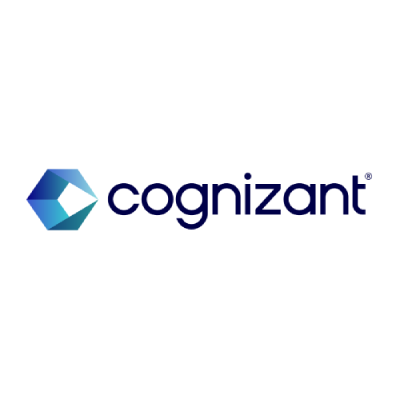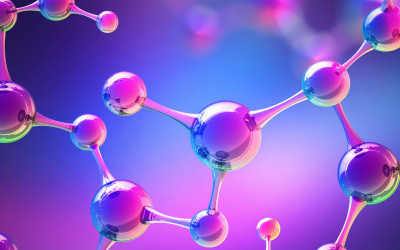Key technologies in AI–driven drug discovery
1. De novo drug design with artificial intelligence
De novo drug design is a challenging task in computer-assisted drug discovery, aiming to create new molecules with desired pharmacological properties. Generative models, such as recurrent neural networks and variation autoencoders, play a vital role in personalized medicine by customizing drug candidates based on individual genetic and physiological characteristics.
Generative AI can be divided into three classes: distribution-learning, goal-directed generation, and conditional generation. Distribution-learning involves producing new molecules to fill the same chemical space as the training set, while goal-directed generation optimizes scoring functions to refine the generated molecules over time. Conditional generation challenges the generation of new molecules that meet specified criteria by mastering a combined semantic space of attributes and structures found via experimentation. Examples:
- Merck's AI-powered drug discovery platform AIDDISON is useful for drug designers to explore vast chemical space and design successful drug candidates in minutes.
- Adaptyv Bio utilizes AI for protein engineering, combining algorithms, robotics, microfluidics, and synthetic biology to optimize protein-ligand interactions.
2. Drug repurposing (Data mining, off target prediction)
Generative AI has the potential to revolutionize drug repurposing through database mining and network analysis. The identification of candidates from extensive compound databases can efficiently identify new drug-disease associations. Additionally, generative AI can discover off-target effects that may lead to repurposing current medications for different illnesses. For example, it could reveal that a hypertension drug is also effective in treating neurodegenerative diseases. This technology also conducts network analysis to find unexpected relationships, such as a cancer drug targeting a rare genetic disorder pathway. Overall, generative AI expands therapeutic options by repurposing existing drugs for a variety of medical conditions. Examples:
- A team of researchers utilized gen AI to repurpose drugs for Alzheimer’s disease, discovering twenty potential candidates. Ten were tested on patients over 65, with metformin, losartan, and simvastatin showing lower Alzheimer’s risks.
- A study conducted by IBM employed gen AI to repurpose medication for dementia in Parkinson's disease patients. The algorithm suggested repurposing rasagiline, an existing Parkinson’s medication, and zolpidem, which is used to ease insomnia.
3. Quantitative structure-activity relationship (QSAR), and drug-target interaction
In AI-driven drug discovery, virtual screening (VS) is a powerful tool for identifying potential leads. QSAR/QSPR models predict optimal drug properties using chemical data, descriptors, and molecular simulations. SAR analysis explores how a compound's structure affects its biological activity. Generative AI accelerates the screening process by quickly assessing large libraries of compounds for potential binding.
- NVIDIA introduced Deep Docking (DD), a cutting-edge deep learning technology that accelerates structure-based virtual screening by up to 100 times faster by docking a portion of a chemical library.
- AlphaFold by DeepMind accurately predicts the 3D structures of proteins, aiding in drug discovery. Researchers at Verseon International Corporation used AlphaFold to identify a new CDK20 inhibitor.
Cognizant capabilities towards drug discovery using generative AI
Gen AI is transforming the pharmaceutical industry by revolutionizing drug discovery, clinical trials, and manufacturing. AI tech companies are leading this innovation with advanced algorithms that predict drug interactions, optimize trial designs, and improve patient outcomes. Big Pharma companies are using AI to address challenges such as high failure rates and lengthy development timelines.
Cognizant has developed an AI-powered platform for a major pharmaceutical company in Germany to speed up the drug discovery process. The platform creates thousands of potential molecules, filters them based on properties, evaluates biological activity, and sends the best designs for synthesis. It offers a secure software-as-a-service environment and cloud-based serverless architecture to help control costs.
We are working with NVIDIA to enhance drug discovery. They provide customers with model-making services utilizing NVIDIA's gen AI models, allowing for customization using proprietary data. Cognizant plans to establish an NVIDIA AI Center of Excellence to further innovate. Our expert team members are capable to design novel small, predict complex protein structures and even prediction of subcellular localization of a protein sequences. The collaboration of Cognizant with the pharmaceutical sector aims to yield groundbreaking advancements in medicine, improve patient outcomes, and increase business value in the pharmaceutical industry.
Conclusion
The generative AI drug discovery market will reach $1417 million by 2032, growing at 27. 1% annually. AI aids personalized therapy, faster drug development, and overcoming drug resistance. Further advancements can lead to personalized medicine, rare disease therapy, and drug recycling with enhanced research and collaboration.
Our experts are contributing exciting insights about what's going on within technology and innovation.
















